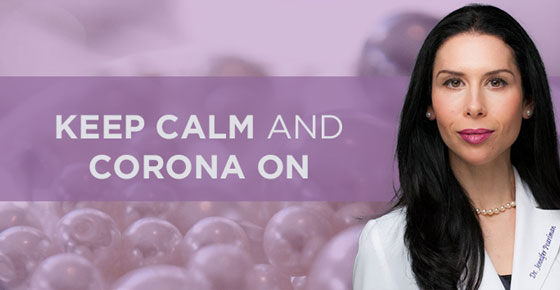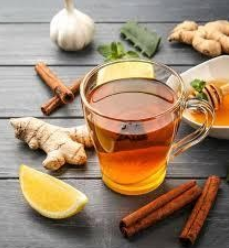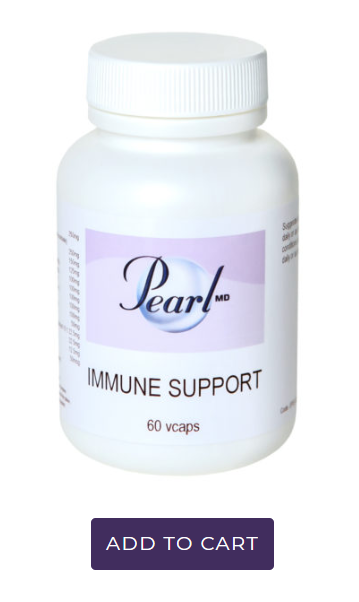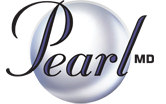 How to Boost your Immune System in the face of a Pandemic
With a global pandemic upon us and the looming threat of COVID-19, our immune systems are on the front line. Our immune system provides first line defense against invaders like viruses and bacteria. While Coronavirus is typically associated with a mild infection to which we are largely immune, the current strain known as SARS-Cov2 wreaking havoc on the world is different. It bypasses our immune system gaining access to our lung cells in a different way- via a ACE2 receptors. For this reason, it is unlikely that vaccination will be a plausible solution but rather we require a strong and resilient immune system and for that matter- community!
The following top tips are provided to help boost your immunity and protection in these trying times.
How to Boost your Immune System in the face of a Pandemic
With a global pandemic upon us and the looming threat of COVID-19, our immune systems are on the front line. Our immune system provides first line defense against invaders like viruses and bacteria. While Coronavirus is typically associated with a mild infection to which we are largely immune, the current strain known as SARS-Cov2 wreaking havoc on the world is different. It bypasses our immune system gaining access to our lung cells in a different way- via a ACE2 receptors. For this reason, it is unlikely that vaccination will be a plausible solution but rather we require a strong and resilient immune system and for that matter- community!
The following top tips are provided to help boost your immunity and protection in these trying times.
- Handy hygiene: Washing hands regularly is the most important first step to preventing infection. SARS-Cov2 is spread via droplets that enter the system from the nose, mouth or eyes. Hand washing should be vigorous at least 20 seconds and followed with an alcohol based hand sanitizer when coming in from the outdoors or before touching food or your face. Avoid unnecessarily touching your mouth, eyes and nose. Use a covered hand when touching surfaces outside your home; rails, elevator buttons, etc. Coughing or sneezing into your elbow not your hands is a good way to reduce transmission of illness by hand contamination.
- Social Distancing: We have heard a lot about this idea. Social distancing means no handshakes, or even close contact (forget the fist bump or foot shake). If the kids are at home, they should not be engaging in play dates or play groups. Your inner circle should all be closely following hygiene and social distancing to protect the group and especially those at highest risk.
- Stay Hydrated: Ensure you are taking in enough water and fluids to maintain hydration status. Dehydration can increase susceptibility to illness and infection and increasing fluid intake with early symptoms of infection can help shorten the course of illness.
- Layer up: Keep core body temperatures warm by dressing appropriately for the weather as overexposure to cold can reduce immunity.
- Sleep tight: Ensure you are getting adequate sleep. Most of us require 8 hours nightly. Sleep deprivation and insomnia have been associated with increased risk of infection.
- Stress less: Put in place a well honed stress management system to keep daily life stressors at bay. While there is no magic bullet to eliminate stress, integrating stress reducing techniques like mindfulness, meditation and deep breathing can help you better cope. High perceived stress levels are associated with reduced immunity and increased risk of infection and disease. What better time than to try some self-guided meditation apps and enjoy a nature walk for the fresh air and mental clarity.
- Clear the passage: Small hair-like projections on the inner lining of the nose, called cilia, provide a first line defense against air-borne pathogens. These cilia can be irreversibly damaged by cigarette smoking as well as dust and pollution. For some, chronic congestion of the facial sinuses and nose may require additional drainage efforts throughout wintertime flu season to prevent acute on chronic problems. Sinus rinses and nasal sprays are available without a prescription and work by flushing out and hydrating the sinuses and nasal cavities to reduce infection.
Eat your Colours: New research has shown that micro-nutrient malnutrition, as in a lack of vital minerals and vitamins, is associated with reduced immune function and increased risk of infection. The food colour-wheel is used to represent fruits and vegetables across the colour spectrum (red, orange, yellow, green, purple, blue, white) that offer a full range of phytonutrients. Many of these colour rich fruits and vegetables such as kale, kiwis, bell peppers, papayas, and tomatoes provide more vitamin C than oranges and offer up phytonutrients that work in a complimentary fashion to support immune function and reduce inflammation.
Smart Supplements: While a colourful diet may be the foundation of good health, the fork may not always be enough. Several immune boosting nutrients are not readily available in the diet and higher dosages may be needed of certain micro-nutrients to bolster immunity sufficiently to prevent illness when exposed to pathogens. These nutrients include zinc, selenium, omega 3 and vitamins A and D. Vitamin C and Zinc are particularly important for coronavirus. I recommend doses of Vitamin C 500mg to 2000mg daily and zinc as 15mg lozenge or drops 2-4 x daily. Adding herbal immune boosting extracts such as astragalus, rhodiola, quercetin, turmeric, ginseng, ginger and green tea can further help ward off infection and shorten the course of illness if symptoms are setting in.
- Get moving: Regular aerobic exercise can help to improve circulation and lymphatic drainage lowering risk of infection. Although, most gyms are closed these days a brisk outdoor walk or bike ride is a great option. I recommend moderate intensity aerobic activity as opposed to vigorous exercise which can in the short run reduce immunity.
- Vaccinate: While vaccination is an important way to reduce the risk of other viral illnesses like flu and measles, it is not likely to be effective for coronavirus. Although we have had earlier severe coronavirus outbreaks like SARS-1 (2003) and MERS (2012), we still do not have an available vaccine. While vaccination will not protect you from COVID-19, it may protect you from a serious complicating secondary infection like pneumonia. If you are older than 65 years or otherwise at risk for pneumonia, it is recommended that (at some point) you consider vaccination.
- Go Virtual: Social distancing and a community wide effort to contain the spread of infection means that we all need to isolate at home and limit our exposures including trips to the grocery store and busy public or even outdoor areas. Online shop where you can and amalgamate your shopping for essentials into fewer trips. Access services remotely where possible. We are pleased to offer a seamless, secure and fully integrated Virtual Health platform. We are offering health advice with our team of experts through this virtual platform via video-conferencing. Book your consult here.
Dr. Jennifer Pearlman Dr. Pearlman is a medical doctor in Toronto, Canada. She is owner and Medical Director of PearlMD Rejuvenation a Precision Integative Medical Clinic offering expert medical care, leading technology and treatments to help patients achieve Ageless Vitality. Dr. Pearlman is an internationally recognized expert in Women’s health, hormones, aging and cosmetic medicine.
 Eat your Colours: New research has shown that micro-nutrient malnutrition, as in a lack of vital minerals and vitamins, is associated with reduced immune function and increased risk of infection. The food colour-wheel is used to represent fruits and vegetables across the colour spectrum (red, orange, yellow, green, purple, blue, white) that offer a full range of phytonutrients. Many of these colour rich fruits and vegetables such as kale, kiwis, bell peppers, papayas, and tomatoes provide more vitamin C than oranges and offer up phytonutrients that work in a complimentary fashion to support immune function and reduce inflammation.
Eat your Colours: New research has shown that micro-nutrient malnutrition, as in a lack of vital minerals and vitamins, is associated with reduced immune function and increased risk of infection. The food colour-wheel is used to represent fruits and vegetables across the colour spectrum (red, orange, yellow, green, purple, blue, white) that offer a full range of phytonutrients. Many of these colour rich fruits and vegetables such as kale, kiwis, bell peppers, papayas, and tomatoes provide more vitamin C than oranges and offer up phytonutrients that work in a complimentary fashion to support immune function and reduce inflammation.




